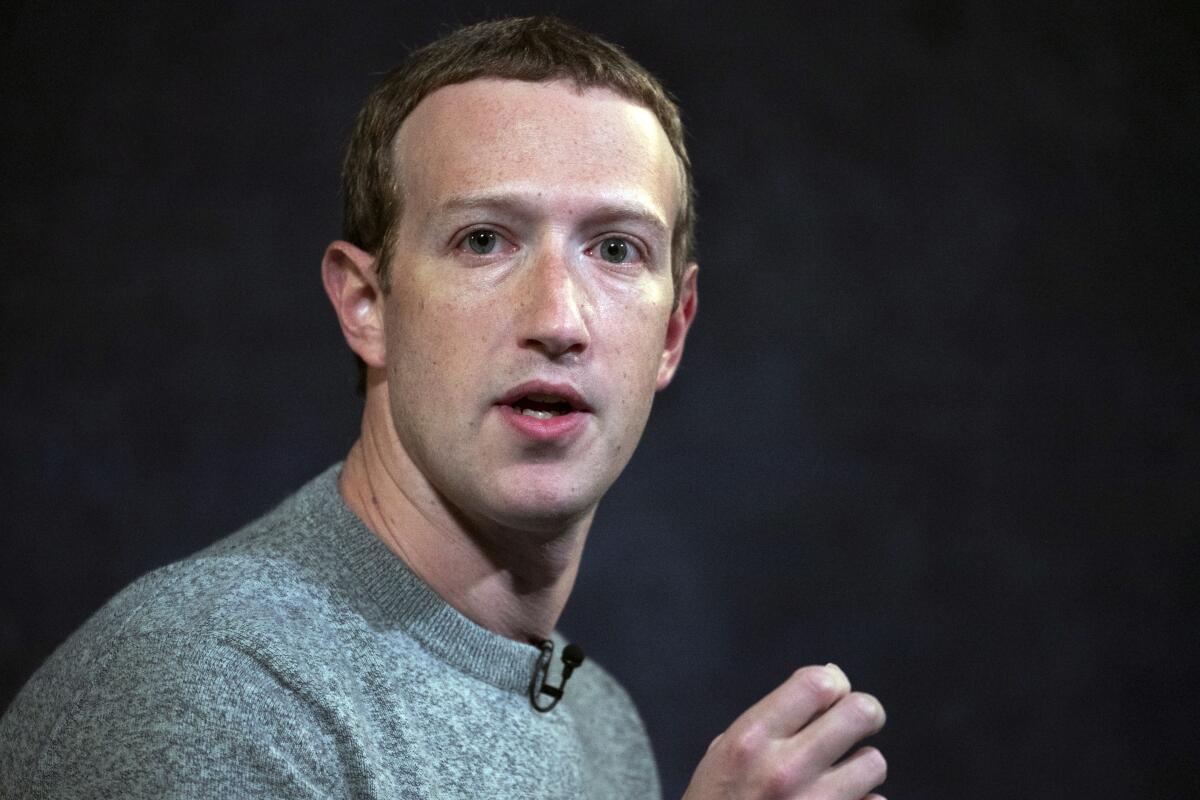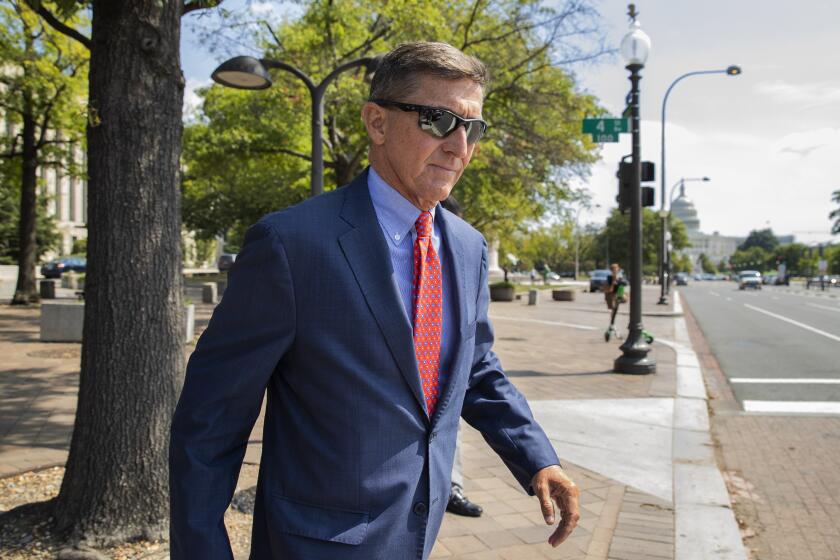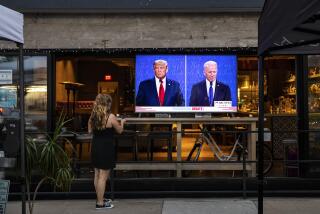Opinion: What a wonderful world it would be ... if Facebook stopped running political ads

Facebook may finally stop lending its enormously powerful microphone and amplifier to deceitful politicians and manipulative campaigns. And in doing so, it would also block truthful candidates who are just trying to correct the record, outline their policies or encourage people to get out and vote.
It’s a fair trade as far as I’m concerned.
Bloomberg’s Kurt Wagner reported Friday afternoon that officials at the social networking giant were discussing a temporary ban on political advertising to reduce the spread of misleading, questionable or false material on the site in the run-up to the November election. The report came two days after Facebook released a damning audit of its “reactive and piecemeal” efforts to keep its network free of hate speech and voter suppression, among other objectionable practices. Oh, and by the way, a small but growing number of major advertisers are boycotting Facebook over a similar set of issues.
A ban would answer those complaints only where advertising by pols and their campaigns is concerned. But it would relieve the company of the responsibility that Facebook CEO Mark Zuckerberg has famously resisted, which is to fact-check political ads the same way it does every other advertisement.
Please, park your “censorship” complaints outside. Pols and campaigns would presumably continue to be free to post whatever they feel like posting on their Facebook pages, and their followers could share and recirculate those posts to the four corners of the social network. All Facebook appears to be considering is a ban on candidates and campaigns paying to spread their messages to the users they target, with Facebook’s help, by location, gender, age, interests and a host of other personal factors.
As the Cambridge Analytica scandal amply demonstrated, such microtargeting helps advertisers train their messages on the people who’ll be most susceptible to them. In other words, it’s what helps direct deceptive ads away from the people who will view them critically and toward those who are most likely to be manipulated by them.
A federal judge is appealing an order that would force him to let Michael Flynn off the hook.
That’s why Google, to its credit, has banned microtargeting in political ads. Twitter went further, banning political ads outright. Facebook is now thinking about following suit, although Wagner wrote that no decisions have been made.
Although a ban on political ads looks like a straightforward solution, it’s a lot more complicated than it seems. The biggest challenge is defining a political ad, given that there are plenty of gray areas. If the League of Women Voters wants to promote a video on how to register to vote, is that a political ad? (No.) If President Trump wants to do the same, is that a political ad? (Maybe.) How about if Trump wants to urge people not to vote by mail? (Definitely.)
Granted, Facebook is a big part of the internet advertising ecosystem. But even without the social network, campaigns up and down the ballot will spend billions of dollars this year promoting their messages. Taking Facebook out of the equation removes one particularly pernicious element — ads that are microtargeted — without stopping campaigns from spending treasuries larger than Croesus’ on more conventional advertising.
That’s one reason not to worry about Facebook’s ban hitting honest campaign ads, too. I mean really, does anybody think we don’t see and hear enough political ads on television, radio, billboards, mailers, buses and the like during campaign season?
Critics of microtargeting say that it enables campaigns to quietly deliver different messages to different groups of voters, rather than having to appeal broadly to the electorate as they do on TV and radio. That’s an alarming lack of transparency. Getting Facebook out of the game wouldn’t end that practice, but it would remove one of the main outlets for it.
More to Read
A cure for the common opinion
Get thought-provoking perspectives with our weekly newsletter.
You may occasionally receive promotional content from the Los Angeles Times.












